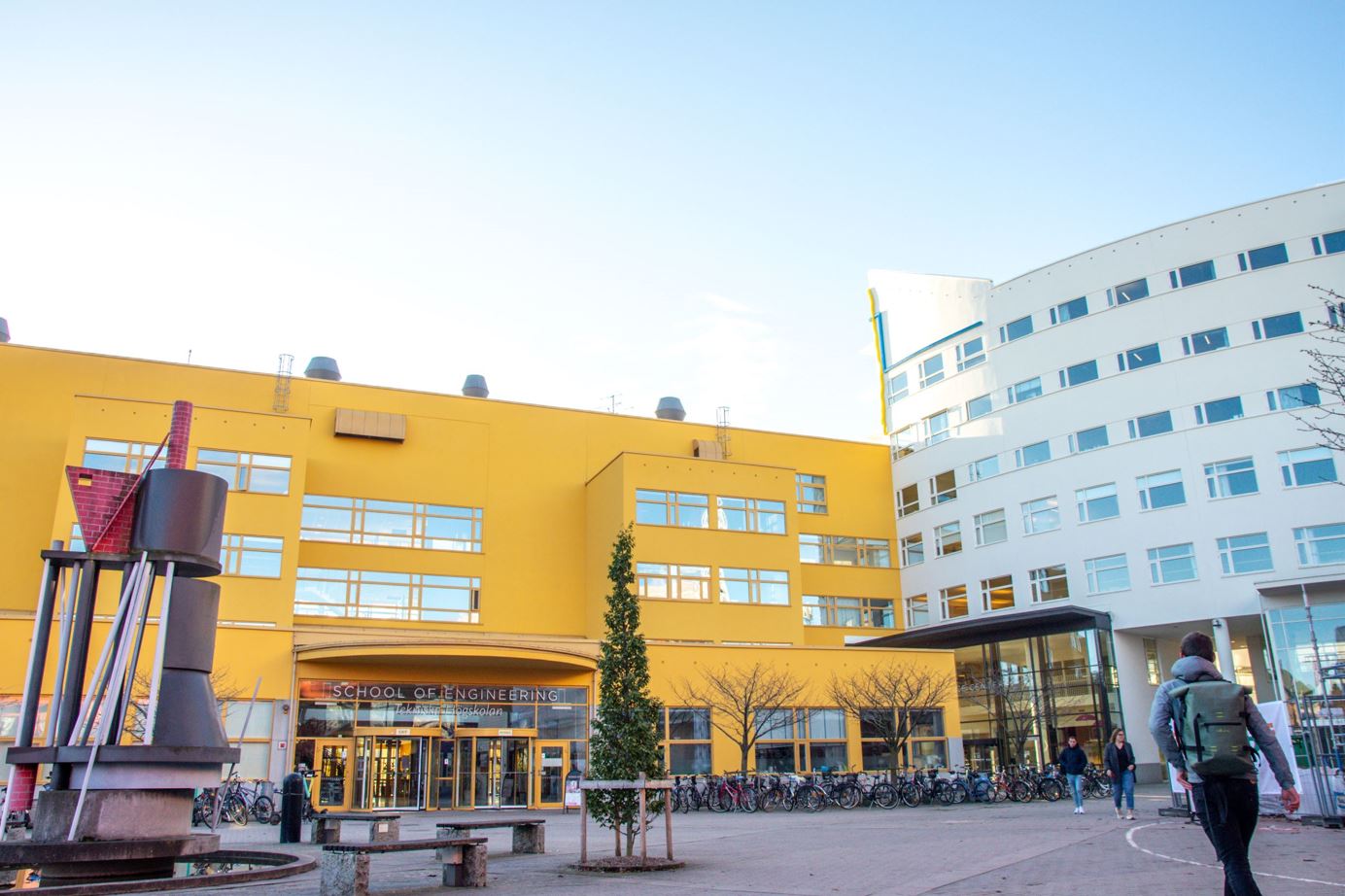AFAIR - AI in Industry, Today and Tomorrow
Facts
Academic Partners: School of Engineering, Jönköping International Business School
Duration of the Project: 2021-2028
Steering group companies: Bufab, Fagerhults Belysning, Husqvarna Group, Siemens Energy
Industrial Partners: Combitech, GKN Aerospace, Thule Group, Tranter, Mölnlycke, Electroclux Professional, Saab, Redfield
Research Team:
Joakim Wikner, Profile leader External link, opens in new window.
Annika Engström, Project leader External link, opens in new window.
Hamid Jafari, Project leader External link, opens in new window.
Mats Jackson, Project leader External link, opens in new window.
Ulf Johansson, Project leader External link, opens in new window.
Tuwe Löfström, Project leader External link, opens in new window.
Maria Riveiro, Project leader External link, opens in new window.
Christian Sandström, Project leader External link, opens in new window.
Florian Westphal, Project leader
Financier: KK Foundation

AFAIR is a research profile within SPARK where academia and industry collaborate to develop advanced AI solutions that strengthen the industry while exploring how AI impacts decision-making, organization, and future value-creating flows.
The project combines technological development with organizational and logistics research to create tangible benefits for industry. We develop new algorithms and methods in AI—particularly focusing on uncertainty modeling and interpretability. In organizational and logistics research, the human aspect is more central, and we investigate how AI technologies can be introduced and used effectively and responsibly. The close collaboration with participating companies is a strength that leads to concrete benefits in industry. The goal is not only to increase efficiency but also to create new competitiveness, innovation capacity, and sustainable transformation through AI in practice.
Since its inception in 2021, AFAIR has emerged as a strong research profile at Jönköping University. We focus on four key areas that also explain the acronym AFAIR:
Ambidexterity – the ability to combine stability with innovation in organizations
Flows – efficient and value-creating flows within production and supply chains
AI – development of algorithms and methods to enable effective and credible decision support
Responsiveness – the ability to adapt to changes in the external environment
Our approach
AFAIR is based on co-production—researchers and companies develop solutions together. This means that we identify needs, develop methods, test in real environments, and follow up on results. Our approach is multidisciplinary: AI experts, production researchers, logisticians, and organizational researchers collaborate with corresponding competencies from companies to understand and shape how AI can be used in industry.

The School of Engineering at Jönköping University.
What We Learned from Phase 1 (2021–2024)
Within AFAIR, research has contributed to both technical deepening and organizational understanding of how AI can be applied in the industry. On the technical side, new AI algorithms and methods are being developed that meet the industry's requirements for reliability, interpretability, and adaptation to complex real-world environments—a crucial prerequisite for building trust in AI-based decision support. Focus is on solutions that can quantify uncertainty, explain decisions, handle varying data quality, and support users in critical decisions. AI has also been applied to predict business events, develop digital services, and strengthen companies' ability to handle disruptions in the supply chain.
Organizationally, it's not just about implementing new technology but about changing how we work, learn, and lead organizations to take advantage of AI. By understanding and managing the challenges that come with AI—such as uncertainty, new competence needs, and changing roles—companies can turn these into strategic advantages and increased innovation power. AI implementation also doesn't occur in a vacuum; it's influenced by everything from external regulations and industry practices to internal norms and leadership strategies. AI transformation is fundamentally as much about organizational change and cultural adaptation as it is about technical development. A digital tool has also been developed for companies to test how well-prepared they are to implement AI in their processes.
Next step
During Phase 2 (2025–2028), AFAIR takes further steps. With new projects building on previous learnings, more companies, and a continued focus on multidisciplinary collaboration and co-production, we are developing both research and the industry's ability to use AI in a sustainable and competitive way. Check out our ongoing projects to learn more. Follow us on LinkedIn to see our latest news!
More information
Do you want to know more about the project?
- Professor Logistics
- School of Engineering
- joakim.wikner@ju.se
- +46 36-10 1637
Do you want to develop the next project with us?
- External Relations Manager
- School of Engineering
- linda.bergqvist@ju.se
- +46 36-10 1074



%20morkbla-logo-staende-eng.png)

